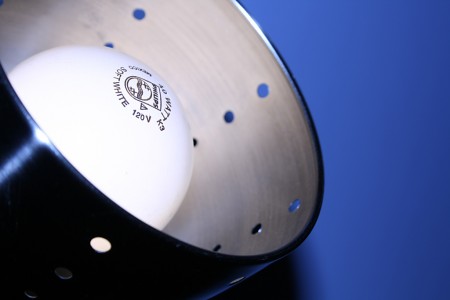After the deluded attitude of the last American administration, it is a relief to see that Steven Chu, the new energy secretary, has grasped the magnitude of the climate challenge. In his first interview, Chu discussed the impact a business-as-usual approach to greenhouse gas mitigation could have on California by 2100:
In a worst case, Chu said, up to 90% of the Sierra snowpack could disappear, all but eliminating a natural storage system for water vital to agriculture.
“I don’t think the American public has gripped in its gut what could happen,” he said. “We’re looking at a scenario where there’s no more agriculture in California.” And, he added, “I don’t actually see how they can keep their cities going” either.
Talking candidly about the ramifications of increasing greenhouse gas concentrations to around 1000 parts per million, and increasing global temperatures by well over 5ºC, is an important part of making the case for action. That is especially true when a few people still foolishly believe that climate change mitigation is about protecting beavers, rather than averting major damage to human welfare worldwide.


Related to the linked beaver video:
Your beaver. It’s the best.
‘This is a real economic disaster in the making for our children’
Steven Chu’s full global warming interview
Posted by Joseph Romm (Guest Contributor) at 4:20 PM on 09 Feb 2009
Q: So you’re looking at a scenario of permanent water rationing?
CHU: No, you’re looking at a scenario where there’s no more agriculture in California. When you lose 70 percent of your water in the mountains, I don’t see how agriculture can continue. California produces 20 percent of the agriculture in the United States. I don’t actually see how they can keep their cities going.
This is not only true of California, this is true for all the Western states. Forests are dying because of parasites. The pine bark beetle is killing pine. British Columbia has already lost 40 percent of its pine … so, when there are no trees, when it rains, the soil doesn’t hold the water
Water in California
Stuck in the Delta
Sep 24th 2009 | LOS ANGELES
From The Economist print edition
Californians continue fighting over water, but vow to try making peace
Reform must happen, and the sooner the better, says Ellen Hanak of the non-partisan Public Policy Institute of California, because the state’s problems will only get worse with climate change. Already the snowpack in the Sierra Nevada, the main water storage for the Delta, is shrinking. A dry state is likely only to get drier.
California Approves Cap-and-Trade
Cap-and-trade might be dead at the national level, but California has become the first state to institute the carbon-limiting program. The California Air Resources Board unanimously voted to adopted the set of pollution controls, beginning a program that will put a price on carbon emissions by allowing California industries to trade carbon credits. Cap-and-trade is at the center of California’s climate change law aiming to reduce carbon emissions to 1990 levels by 2020. Proponents of climate legislation hope California will serve as a model for other states.
An account in Politico last month described his chief of staff dressing down Nobel laureate and then-Energy Secretary Steven Chu in 2009 for daring to tell an audience in Trinidad that island nations were in severe danger from rising seas. Rahm Emanuel called his deputy Jim Messina to say, “If you don’t kill Chu, I’m going to.” On the plane home, Messina told Chu, “How, exactly, was this fucking on message?” It’s rarely been on message for Obama, despite the rising damage. His government spent about as much last year responding to Sandy and to the Midwest drought as it did on education, but you wouldn’t know it from his actions.
The drying of the West
Drought is forcing westerners to consider wasting less water
…
The “ridiculously resilient ridge,” an unusually persistent high-pressure zone, has installed itself off the Pacific coast, stopping precipitation systems from travelling towards the Sierra Nevada, where they typically deposit their moisture. Last month snowpack in the Sierras fell to 12% of average January levels. Rainfall has disappointed for three years. Lake Folsom, near Sacramento, has shrunk so far that an old gold-rush town has been exposed. The rainy season has six weeks or so to go, but there is little sign of respite. California is bracing itself for a brutal fire season.
…
The problem is that 1922 fell in an unusually wet period. For decades that did not matter; the basin states were not big enough to demand their full allocation. No more: five of the seven are among America’s ten fastest-growing states. Moreover, climate change may be reducing supply even as demand rises. In 2012 the FBR said that by 2060 the supply gap from the Colorado could reach 3.2m acre-feet (an acre of water a foot deep is the standard unit for large amounts of the precious liquid).